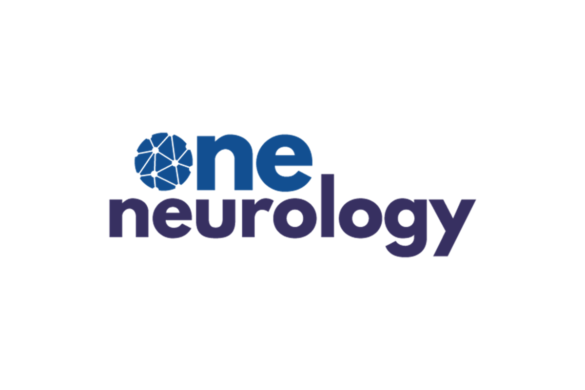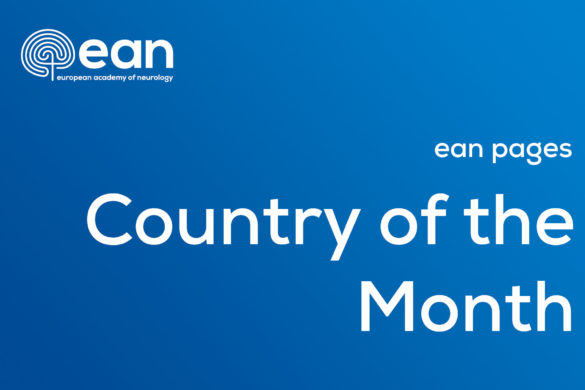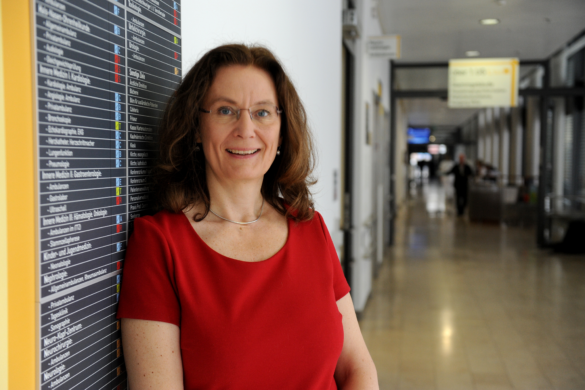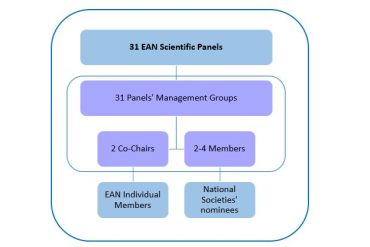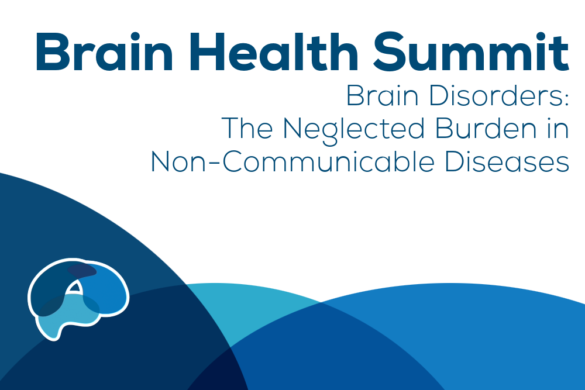The United Kingdom (UK) is noted for its diverse and varied populace with approximately 66 million people living in England, Scotland, Wales and Northern Ireland- which together make up the UK.
The earliest place of medical training in Britain was in 1123 at St Bartholomew’s Hospital and the first formal medical school was Edinburgh University in 1726. Currently, we have 33 medical schools: 25 in England, five in Scotland, two in Wales and one in Northern Ireland. There are currently 6,000 medical students who graduate each year, which will rise to 7,500 by 2025.
The UK National Health Service, founded on 5th July 1948, is tax payer funded, such that healthcare is comprehensive, universal and free at the point of delivery.
The UK can claim to have established the first hospital dedicated to the care of people with diseases of the nervous system. The National Hospital for the Relief and Cure of the Paralysed and Epileptic was founded in 1859. It soon acquired an international reputation and influenced much of the subsequent development of British neurology.
As with other hospitals, ‘Queen Square’, as it came to be known, was a charitable institution where physicians and surgeons attended without pay, making a living from private practice. This changed when all hospitals in the United Kingdom were incorporated into the National Health Service and most doctors became salaried. The experience of two World Wars had emphasised the need for specialist neurosurgery and with the inception of the NHS, neurosurgical centres were established in many regions throughout the United Kingdom: where neurosurgery went, neurology followed in its wake.
Neurology in Britain has always had a rather distinctive flavour. From the outset, it had a strong academic base. Indeed, neurologists have long been perceived by their peers in other specialties as considering themselves to be intellectual and somewhat superior – a reputation which has not always been to their benefit. The strong emphasis on teaching and research has been a traditional feature of British neurology, and for many years, neurologists from around the world commonly spent time training in Britain.
Many British neurologists have made important contributions to the field in the last two centuries. Although perhaps invidious to highlight only a handful of names here, amongst those no longer living, John Hughlings Jackson, David Ferrier and William Gowers in the nineteenth century, and Macdonald Critchley, Gordon Holmes, Roger Gilliatt, John Walton, David Marsden, Anita Harding and Ian McDonald in the twentieth century are widely perceived by all as “giants” of the specialty. The roll-call is considerable though, and many other illustrious names might be added to this list.
There has also been a long tradition of maintaining a generalist approach to the practice of medicine, avoiding over-specialisation. Even today, most neurologists in the UK maintain a general neurological practice and view this as essential for a balanced approach. Until around 1970, consultants were often appointed as ‘physicians’ not ‘neurologists’. The separation of adult and paediatric neurology, and especially psychiatry, has been long-standing practice in Britain. Neurophysiology also was separated from neurology in the 1960s. Neurology is changing in the last decade with much more involvement in acute neurological care, as well as involvement in acute stroke, than was the case in years gone by. Nonetheless, there remains a strong tradition of academic neurology, with most neurology trainees also doing higher degrees with a strong emphasis on neurological research. Training as a neurologist in the UK has undergone a series of changes in recent years. Currently, after 5-6 years at medical school, newly qualified doctors complete 2 years of foundation posts in general medical and surgical specialties, then typically 2 years in general medical specialities, during which time they sit the Membership of the Royal College of Physicians (MRCP) examinations, a requirement to enter 4-5 years of further specialist training at neurology registrar level. They must satisfy curricular requirements at annual progress assessments in order to obtain their Certificate of Completion of Training (CCT) from the General Medical Council. This is necessary to practice as a consultant neurologist.
With a centralised state-funded health service, resources have always been controlled, however. Neurology initially fared badly in terms of expansion and service development in the second half of the twentieth century, a trend which, through the work of the Association of British Neurologists (ABN), has been steadily reversed.
There are 30 regional neuroscience centres (RNCs) in the UK from Aberdeen in the North of Scotland to Plymouth in the South West of England which are crucial to the provision of complex highly specialised neurological and neurosurgical quality care. Perhaps the best known neuroscience centre to those outside of the UK is the National Hospital of Neurology and Neurosurgery in Queen Square, London.
The most recent census by the Royal College of Physicians (London, Edinburgh and Glasgow) reported 850 full time equivalent (FTE) neurologists in the UK. Serving a UK population of 66 million people, this equates to an average of one FTE consultant neurologist per 77,000 people. There are significant regional variations, however, from 1 FTE per 40,000 people in London to one per 146,600 in the East Midlands with several other regions of the UK reporting fewer than 1 consultant neurologist for every 100,000 people. The proportion of women working as consultant neurologists is increasing. Currently 28% of consultant neurologists are female, although this figure rises to 41% in the 35-39-year age group compared with 22% in the 50-54-year group.
The ABN was founded at a meeting held in the house of Dr Gordon Holmes at 9 Wimpole Street, London on July 28th 1932. Eighty-six years later the society has over 1,600 members, more than 800 of whom are consultant neurologists. Its first female president, Professor Mary Reilly, London, demits in May this year to be succeeded by Professor David Burn, Newcastle.
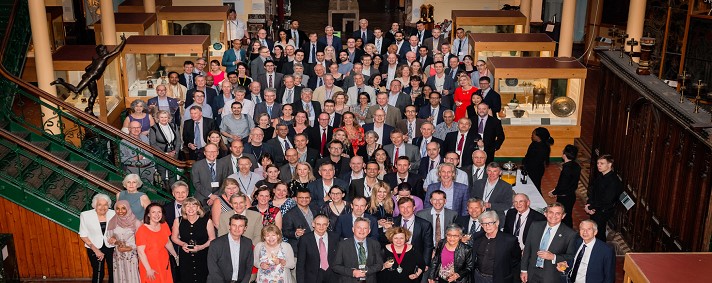
ABN Gala dinner Annual Meeting 2018
The ABN coordinates neurological response to government and other consultations, administers undergraduate, trainee and consultant awards, and provides training for students, trainees and general practitioners. It is supported in this work by a large number of engaged and active members. Council meets three times each year and is supported by Service, Education, Research and Quality Committees. Trainees make a strong contribution to the work of the association through the ABN Trainees committee and their representation on all major committees of council. Participation in government and other consultations is facilitated by the input from 12 sub specialty advisory groups who also contribute to Practical Neurology journal, co-published by the ABN and the British Medical Journal.
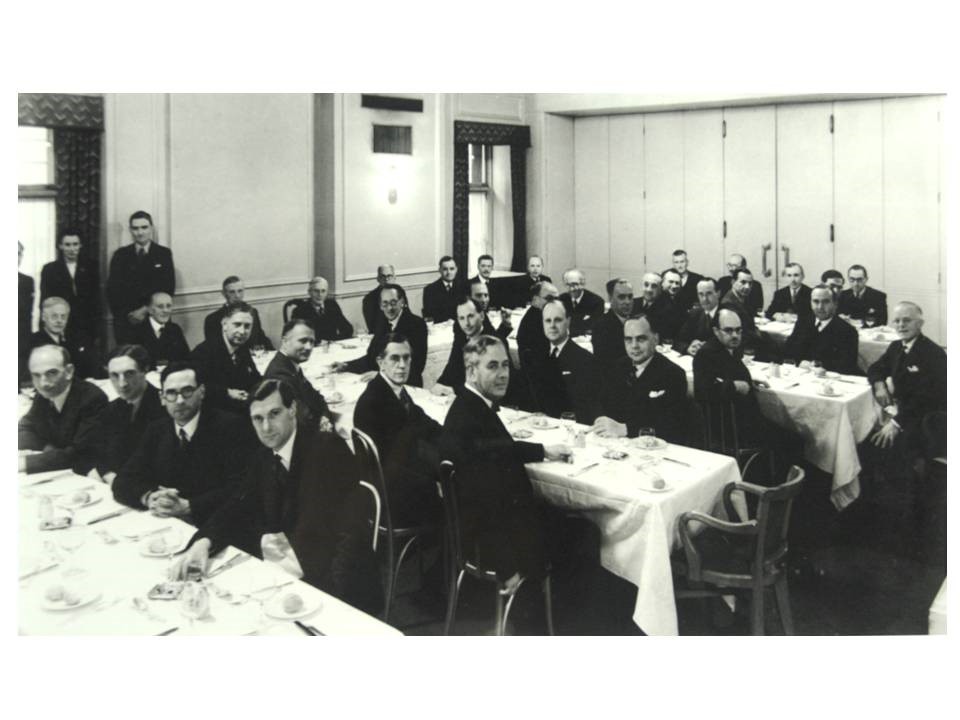
ABN Gala dinner 1948
The Scientific programme committee is responsible for developing two main meetings each year, in spring and autumn, as well as a growing programme for students, junior doctors and general physicians. The most recent spring meeting attracted over 800 delegates, while registration for a joint ABN/Society of British Neurological Surgeons meeting in autumn 2018 exceeded 500. Named lectures at these meetings include the Gordon Holmes lecture (sponsored by the Guarantors of Brain), the Practical Neurology lecture (sponsored by Practical Neurology, the ABN house journal published with the BMJ) and the Sir John Walton Lecture.
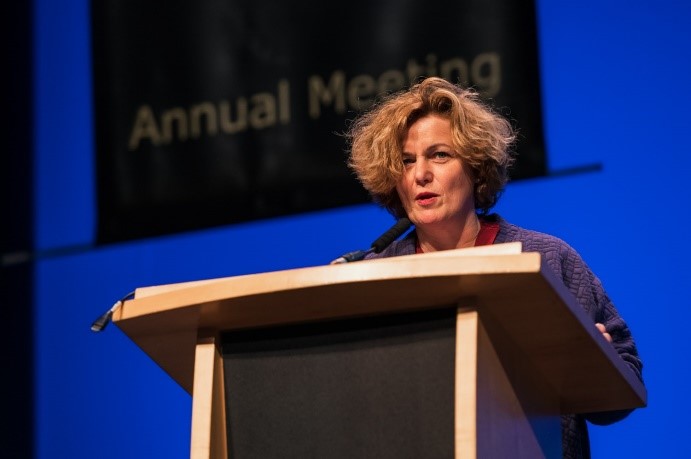
1Professor Mary Reilly, ABN President 2017-19
The ABN’s 2019 annual conference is to be held in Edinburgh with an exciting academic and social programme. The members of the Association of British Neurologists invite their European colleagues to join us in Edinburgh 21-23 May 2019
by
Professor Alastair Compston, Department of Clinical Neurosciences, Cambridge
Professor Simon Shorvon, UCL Institute of Neurology, London
Dr David Nicholl, Honorary Secretary, Association of British Neurologists
Mrs Joanne Lawrence, Executive Director, Association of British Neurologists





